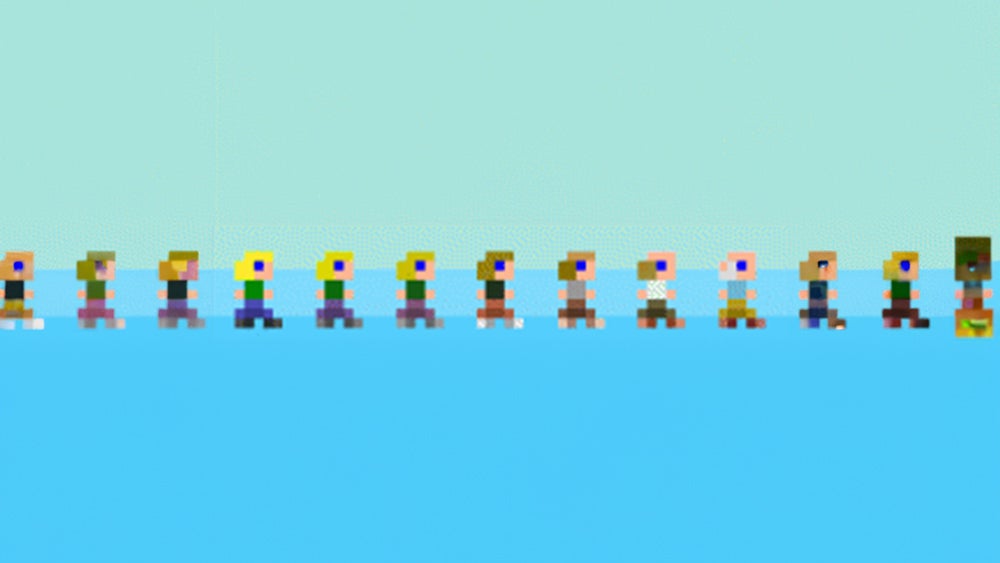About the Program
Cultural Tradition Meets Creative Innovation: Give your CAH degree a tech edge.
The Digital Humanities Minor at Georgia Southern provides you with the opportunity to develop and enhance your skills in humanities, liberal arts, and social sciences by incorporating digital technology. The program can be designed to include video and audio projects, website development, digital mapping, data visualization, 3D design and printing, virtual and augmented reality, big data analysis, and gaming, all components of the rapidly growing field of digital humanities.
Even if you are already pursuing a major in any of these fields, the CAH Digital Humanities Minor offers you a chance to round out your skills, find internships, or produce your capstone project. Through this program, you will acquire the tools and techniques to make your work public and leave a lasting impression in your respective field.
- Want to show how your humanities skills are also technology skills? The minor helps to shape your major degree, demonstrating to potential employers that your research and writing skills go beyond papers and exams.
- Already social media or web savvy and looking for a chance to show that? The Digital Humanities Minor can give you a chance to move beyond the ‘selfie’ and display those skills in real world projects.
- Ready for some serious play? Will you design the next great historical game? Create the next hot Youtube channel? Have your music go viral? Work on a multi-media museum installation? Or show that interviewer that you can handle social strategies, website design and data analysis? One way to find out–DH.
Program Quick Guide
- Fifteen Credit Minor
- Three Required Classes
- Portfolio to Show Prospective Employers
- Internship Opportunities
The H-Lab
Consisting of four rooms plus a gallery on the first floor of the IAB, the H-lab is a state-of-the-art digital humanities laboratory that boasts cutting-edge equipment and technology to facilitate innovative projects and research. The lab is equipped with advanced VR equipment, which provides users with an immersive experience in virtual reality. Additionally, the lab features a recording studio where students can produce their own podcasts, perfecting their skills in audio editing and production. The 3D printers, lasercutter, and CNC router in the maker space allow users to design and create complex three-dimensional objects, while the computers and scanners in the digital lab are perfect for editing and digitizing projects. The H-lab is also connected to a gallery, providing students with an opportunity to showcase their work and receive feedback from the public. With its unique resources and facilities, the H-lab is a hub of creativity and innovation for students pursuing digital humanities as well as the History Major.
Courses
HUMN 2300: Introduction to Digital Humanities
3 Credit Hours. 3 Lecture Hours. 0 Lab Hours.
This course provides a hands-on overview of the rapidly-expanding world of digital applications of the humanities. Ranging from visualizing data in maps and diagrams to interactive experiences like games, the digital humanist is not only a researcher but also a designer who helps make things public and the humanities social. This class not only introduces principles and theoretical approaches, but also offers opportunities to learn techniques and begin to build a portfolio of work for the Digital Humanities Minor.
HUMN 3731: Digital Humanities Internship
3 Credit Hours. 0 Lecture Hours. 0 Lab Hours.
The Digital Humanities Internship is intended to offer the student a chance to individually or with a larger group create a portfolio-quality digital humanities project for an organization outside of the university, building skills for a career involving the digital humanities. In tandem with a faculty mentor, students will plan a project and then over the course of a semester develop content and a platform for its digital delivery in relation to the needs of the organization with which they are working. This class may be taught as a tutorial with a single professor as mentor or as a seminar with other students.
HUMN 4631: Capstone Project for Digital Humanities
3 Credit Hours. 3 Lecture Hours. 0 Lab Hours.
The capstone class is the final class in the Digital Humanities Minor and is intended to offer the student a chance to individually or with a larger group create a portfolio-quality digital humanities project. Students will plan a final project, research content and develop a platform for its digital delivery. At the end of the process, the project will go ‘live’ for both an academic audience and a larger public. This class may be taught as a tutorial with a single professor as mentor or as a seminar with other students.
Program of Study
Visit the Georgia Southern Catalog Page to get the most up to date list of courses for the minor. If you have questions about whether a course not listed there could be substituted, reach out to the Program Director Robert Batchelor (batchelo@georgiasouthern.edu).
Internships and Capstone
Both internships and the capstone can frame a digital humanities minor with an experience or project. Such elements have proven attractive to potential employers or for graduate school applications. Commitment and waiver forms are necessary for internships. Capstones can be supervised by any faculty member at the university. For both internships and capstones, approval is required by the Director of Digital Humanities, Prof. Robert Batchelor (batchelo@georgiasouthern.edu). Ask about incorporating Linkedin Badges and Skill Assessments into your experience.
Undergraduate Research
Research experiences make up a key component of the digital humanities program in the introductory class, internships, and the capstone. For many students, this includes the creation of maps and data visualizations based on datasets as well as websites, installations, and VR experiences. Research posters with an accompanying digital project have been featured in CAH’s CURIO, the University’s Research Symposium, as well as national and international conferences. Talk to your instructor or see this website for suggestions on how to design a research poster for such events.

